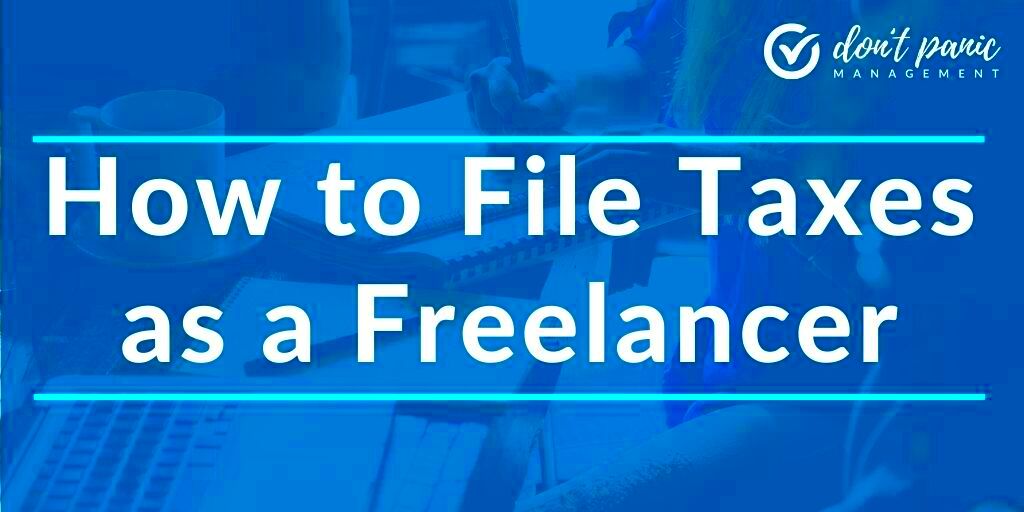Managing taxes as a freelancer can, at times, feel like an uphill task. However, knowing what your tax obligations are will save you from being caught by surprise when it comes to the tax season. Freelancers are classified as self-employed in contrast to conventional employees, hence different tax regulations apply.
It is your responsibility to report your income and remit taxes on it. This encompasses federal income tax, self-employment tax, and likely state taxes attentive to the area of residence. Consider these helpful hints:
- Self-Employment Tax: This tax covers Social Security and Medicare. If you earn $400 or more, you’ll need to pay this tax.
- Estimated Tax Payments: Freelancers typically pay taxes quarterly instead of annually. Be prepared to make these payments based on your estimated income.
- Record Keeping: Keep accurate records of your income and expenses. This will make it easier to file your taxes and identify deductible expenses.
Identifying Deductible Expenses for Freelancers

When it comes to being a freelance, there are some advantages that come with it like being able to deduct specific business costs from your taxable revenue. It can help you save greatly on tax if you know what qualifies for deduction. Below are some usual deductions a freelancer may use:
- Home Office Deduction: If you use part of your home for work, you may qualify for this deduction. You can calculate it based on the square footage of your office compared to your home.
- Supplies and Equipment: Any tools or materials you need to do your work can often be deducted. This includes computers, software, and office supplies.
- Professional Services: Fees for accountants, consultants, or legal advice can be deducted as business expenses.
- Travel Expenses: If you travel for work, keep track of those expenses. This can include transportation, lodging, and meals.
Be certain that you retain receipts and documentation for all of these expenses in order to verify your deductions.
Also Read This: Fiverr Affiliate Program: How to Make $2,000 a Month
Setting Up a System for Tracking Income and Expenses

Tax management needs a good organization of income and expenses. This is important not only during tax time but also provides an overall insight into your business finances for the entire year. Here are some guidelines for establishing an uncomplicated tracking system:
- Choose Your Method: Decide whether you prefer using software, spreadsheets, or a manual ledger to track your finances. Popular software options include QuickBooks and FreshBooks.
- Organize Your Income: Create categories for different sources of income. This will help you see where your money is coming from and how much you’re earning.
- Track Expenses Regularly: Record expenses as they occur. Set a regular time each week or month to update your records to avoid falling behind.
- Review Monthly: At the end of each month, review your financial records to ensure everything is accurate. This is a great time to identify trends and make adjustments.
Confidence in managing finances and preparation for tax season would be guaranteed through this tracking system establishment.
Also Read This: What is a Fiverr Revenue Card?
Choosing the Right Tax Forms for Freelancers

It’s very important to choose the correct forms for your tax returns; otherwise, it may lead to various problems. Freelancers do not receive W-2 forms, which are received by employees working for various companies. Thus, you will have to report your earnings and expenditures using specific forms that are few in number. When you comprehend how these forms work, things become easier and mistakes become fewer.
These are the major types of documents which independent contractors ought to know;
- Form 1040: This is the standard individual income tax return form. Freelancers will fill this out to report their income.
- Schedule C: Attached to Form 1040, Schedule C is used to report income or loss from your business. Here, you'll detail your earnings and expenses.
- Schedule SE: If your net earnings are $400 or more, you'll need to complete this form to calculate your self-employment tax.
- Form 1099-NEC: If you earn more than $600 from a client, they should issue you a Form 1099-NEC, which reports your non-employee compensation.
All forms and receipts should be taken care of to validate your assertion. When it’s tax time, this strategy will yield good outcomes!
Also Read This: Is Fiverr a Good Stock? An In-Depth Analysis
Establishing a Budget for Quarterly Tax Payments

As an independent worker, you have to pay quarterly taxes, which might be very different from what you are used to. It is important to create a budget for these payments so as not to be under a last minute financial strain. Planning ahead enables better management of cash flow; hence, setting aside enough money for tax purposes.
To assist you in making a budget for your quarterly tax payments, steps include:
- Estimate Your Income: Start by projecting your income for the upcoming year. This will give you a clearer idea of how much tax you’ll owe.
- Calculate Your Tax Liability: Use your estimated income to determine your tax rate and calculate how much you’ll need to pay. A good rule of thumb is to set aside about 25-30% of your income for taxes.
- Schedule Your Payments: Mark your calendar for the quarterly payment dates. This is usually due on April 15, June 15, September 15, and January 15 of the following year.
- Open a Separate Account: Consider setting up a separate bank account specifically for your tax savings. This can help you resist the temptation to spend those funds.
Keeping an eye on your budget for quarterly taxes will help you keep track of your money and not end up with surprise bills later.
Also Read This: What Kind of Site is Fiverr?
Seeking Professional Help for Complex Tax Situations
Although most self-employed people can deal with their own tax, there are times when one is required to ask for a helping hand. This is due to the fact that tax laws are complicated and they also change often. It is hence important to ensure compliance as well as maximize deductions. If things get tough for you any time, feel free to seek assistance.
In these instances hiring a tax pro may come in handy:
- Multiple Income Sources: If you work with several clients or have multiple freelance gigs, managing all that income can get tricky.
- Significant Business Expenses: If you have large deductible expenses or unique business needs, a professional can help you maximize your deductions.
- Tax Audits: If you find yourself facing an audit, having a tax professional can provide peace of mind and guidance through the process.
- Changing Tax Laws: If there have been recent changes in tax laws that may affect your situation, an expert can help you navigate these changes effectively.
Although hiring professionals entails expenses, the money typically saved and tranquility of mind surpasses this sum. It is an investment in one’s finances that can reap benefits over time.
Also Read This: 5 Simple Steps to Make Money Online with Stock Photography
Staying Informed About Changes in Tax Laws
Always, tax legislation changes and it is very important that a freelancer remains cognizant to do their taxes well. New rules may alter how much tax you need to pay, what deductions you might be eligible for, or even the entire scheme of managing your income. In this way by being conscious of what goes on around everything concerning them they will have no reason not to honor the law as well as taking other business decisions with all understanding.
A few tips that can help you stay up to date with tax regulations include:
- Follow Reliable Sources: Subscribe to newsletters from reputable tax organizations or the IRS to get the latest information directly.
- Join Freelance Groups: Many online communities and forums discuss tax-related issues. Engaging with fellow freelancers can provide valuable insights.
- Attend Workshops and Webinars: Look for tax workshops specifically designed for freelancers. These can provide practical advice and updates on the latest changes.
- Consult a Tax Professional: Building a relationship with a tax advisor can be beneficial. They can provide personalized updates based on your unique situation.
Confidently managing tax changes and your freelance business can be achieved proactively, by seeking for information.
Also Read This: How to Start as a Freelance Python Developer
Frequently Asked Questions About Freelance Taxes
Amicably addressing several commonly asked questions regarding taxation management for freelancers, mostly new entrants will find it beneficial.
| Question | Answer |
|---|---|
| Do I need to file taxes if I make less than $400? | No, you don’t need to file if your net earnings are below $400. However, it’s still a good idea to keep track of your income. |
| Can I deduct my home office expenses? | Yes, if you use part of your home exclusively for business, you can deduct related expenses. |
| What records should I keep for my taxes? | Keep records of all income, expenses, receipts, invoices, and any relevant correspondence. |
| When are my estimated tax payments due? | Estimated tax payments are generally due on April 15, June 15, September 15, and January 15 of the following year. |
Should you require more information, don’t hesitate to ask trustworthy sources or tax experts. When it comes to coping with taxes, knowledge is the strongest weapon.
Conclusion on Managing Taxes as a Freelancer
Taxation managing for freelancers may appear as if it is an insurmountable challenge but actually, it is very simple provided one has adequate information and tools at his or her disposal. For one to manoeuvre through a diverse tax terrain, they must comprehend their responsibilities in regards to taxing, note down what is deductible and ensure that he or she has all these calculations organized properly in their files. Keeping abreast of taxation changes as well as engaging experts who offer this kind of services can also make it easier.
She is being taught on information until 2023, October.




